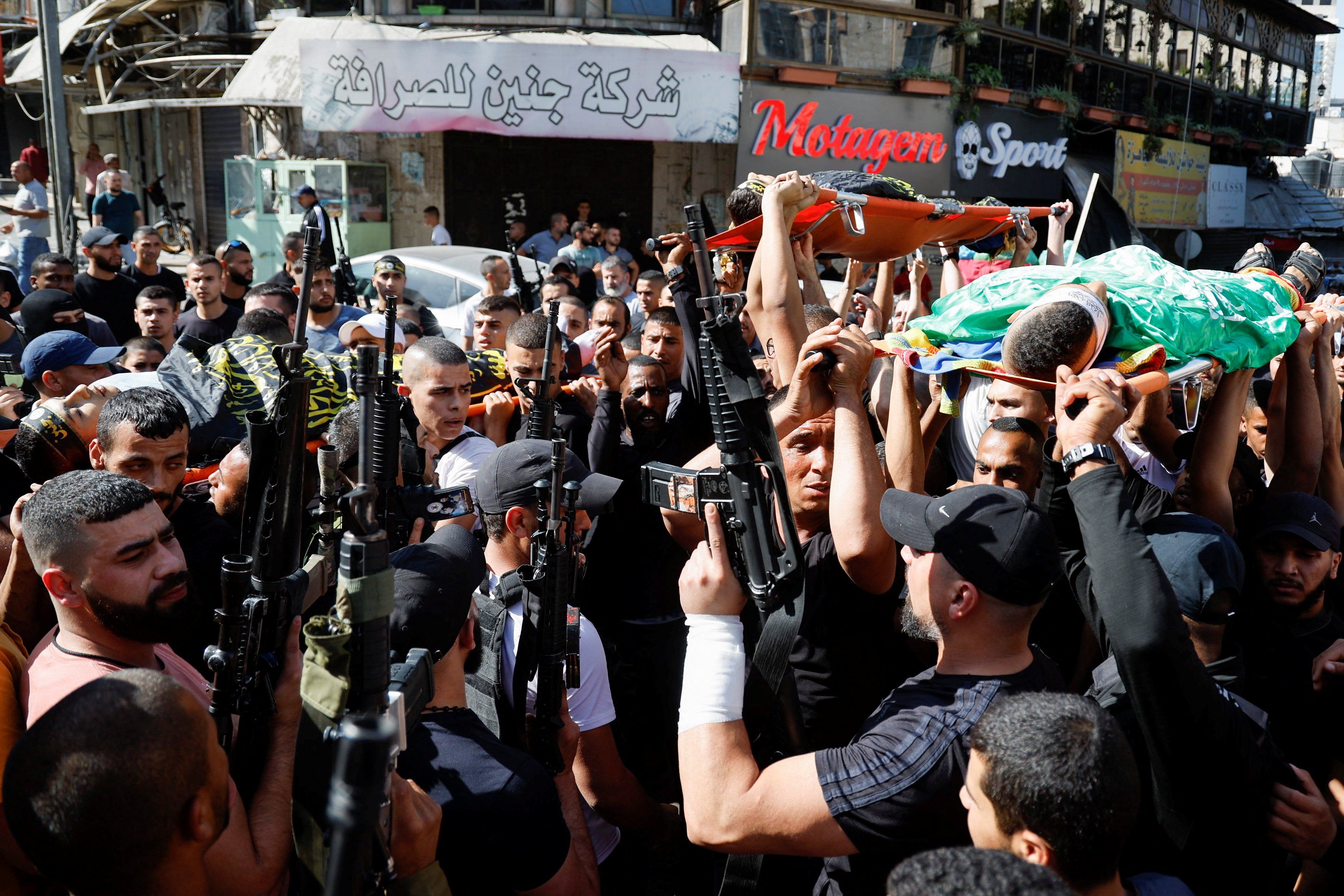While much of the world’s attention remains on Gaza, the situation is deteriorating fast in the occupied West Bank, where security operations by Israel and violent attacks by Jewish settlers on Palestinians have increased over the past two weeks.
The (very simplified) background: Israel has occupied the West Bank since 1967. The 2.5 million Palestinians living there are governed locally by the Palestinian Authority, which is led by the Fatah party, the main secular rival to Hamas. Fatah renounced violence in the 1990s as part of negotiations meant to reach a two-state solution with Israel. Since then, Jewish settlements, which are illegal under international law and often displace Palestinian homes, have expanded significantly — there are now more than 700,000 West Bank settlers. Israel maintains tight security control over the West Bank, in cooperation with the Palestinian Authority.
Even before the Oct. 7 Hamas massacre and Israel’s retaliation in Gaza, 2023 was already the deadliest year for Palestinians in the West Bank since at least 2008. Over the past two weeks, things have gotten worse: Israeli soldiers and settlers have killed as many as 100 Palestinians, according to Palestinian sources, while some 1,400 people have been detained.
Israel says it is moving to uproot Hamas and other terrorist operatives entrenched in the West Bank. In July, Israel launched its biggest West Bank operation in years, targeting militants, weapons caches, and bomb-making facilities in the northern city of Jenin.
On Wednesday, an Israeli airstrike there leveled a mosque the IDF said was housing a Hamas and Islamic Jihad command post. Recent reports suggest Iran has been flooding the West Bank with weapons that wind up in the hands of militant groups.
Israeli human rights organization B’Tselem, meanwhile, has warned that “state-backed settler violence” has also been rising in recent weeks, as armed settlers harass and attack ordinary Palestinians in the West Bank.
Who’s in charge? All of this puts aging Palestinian Authority president Mahmoud Abbas in a difficult position. The 87-year-old, chain-smoking PA chief is considered widely unpopular due to the perception that Fatah has achieved little for Palestinians after more than two decades of cooperating with Israel.
As casualties in Gaza mount, while Israeli operations intensify in a West Bank increasingly saturated with weapons, Palestinians’ frustrations there risk boiling over in ways that Abbas may not be able to control. If so, a second front of the current conflict could open up in the east, even as Lebanon-based Hezbollah weighs opening its own front in the north.
